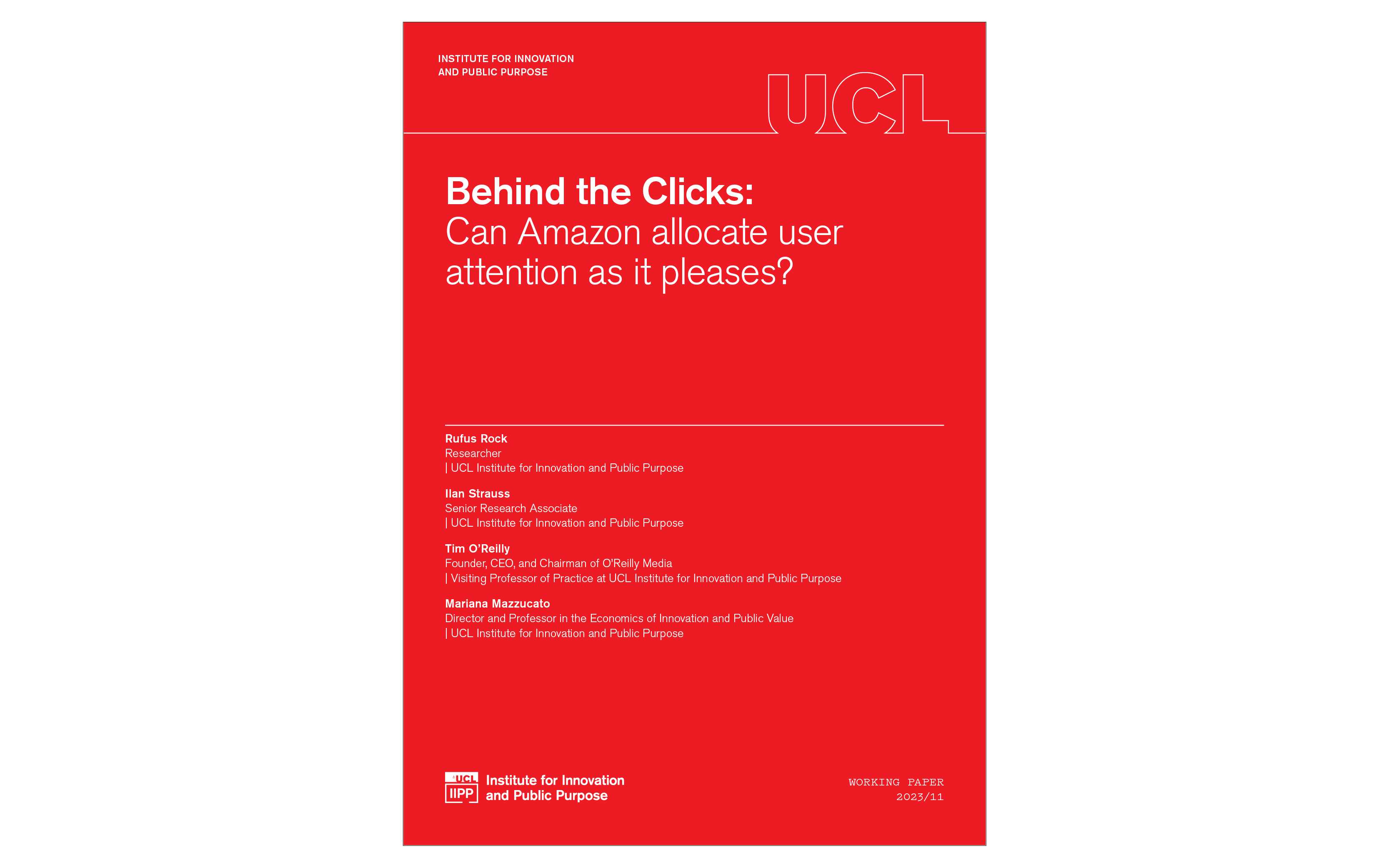Behind the Clicks: Can Amazon allocate user attention as it pleases?
Authored by Rufus Rock, Tim O'Reilly, Dr Ilan Strauss and Professor Mariana Mazzucato

16 November 2023
UCL Institute for Innovation and Public Purpose (IIPP) Working Paper Series: IIPP WP 2023-11
Authors:
- Rufus Rock | Researcher | UCL Institute for Innovation and Public Purpose (IIPP)
- Tim O’Reilly | Founder, CEO, and Chairman of O’Reilly Media | Visiting Professor of Practice at UCL Institute for Innovation and Public Purpose (IIPP)
- Ilan Strauss | Senior Research Associate | UCL Institute for Innovation and Public Purpose (IIPP)
- Mariana Mazzucato | Founding Director and Professor in the Economics of Innovation and Public Value | UCL Institute for Innovation and Public Purpose (IIPP)
Reference:
Rock, R., Strauss, I., O’Reilly, T. and Mazzucato, M. (2023). Behind the Clicks: Can Amazon allocate user attention as it pleases? UCL Institute for Innovation and Public Purpose, Working Paper Series (IIPP WP 2023-11). Available at: https://www.ucl.ac.uk/bartlett/public-purpose/wp2023-11
Abstract:
We investigate Amazon’s power to extract economic rents through the algorithmic arrangement of search results. We analyze 2023 Amazon Marketplace search result data, focusing on product features and the top-3 most clicked products, to estimate what drives user clicks. Our econometric results show that increased visual prominence and positioning (“attention share”) correlates strongly with more clicks, even when products have a higher price or worse ratings. Among the top five search results, where typically four are advertisements, we find that neither decreased relevancy nor increased price significantly sways user decisions. This suggests that users tend to satisfice, accepting the products displayed prominently by Amazon’s algorithms, rather than exhaustively searching for optimal choices. Advertising on Amazon exploits this behavioural dynamic by transforming product prominence into a mechanism for rent-extraction.
 Close
Close

